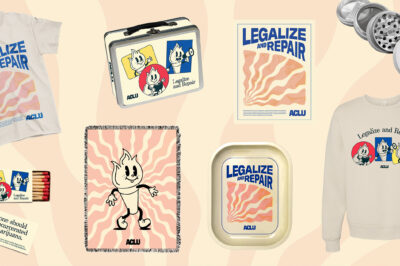Poll results: Most Utahns favor dropping penalties for drug possession; want drug users to get treatment, not jail or prison
Survey by community-based organizations shows that Utahns see drug use as a public health issue, not a criminal justice issue
February 19, 2015
FOR IMMEDIATE RELEASE
CONTACT: 212-549-2666, media@aclu.org
Salt Lake City, UT – A recent poll of 551 registered Utah voters reveals that a strong majority favor less punitive ways of dealing with drug use and drug possession in Utah.
Four local community-based organizations – the Disability Law Center, the National Alliance for the Mentally Ill (NAMI)-Utah, Utah Support Advocates for Recovery Awareness (USARA) and the American Civil Liberties Union of Utah – today released the results of a Utah survey about drug possession penalties.
The results show that Utahns are ready for the common-sense reforms recommended last November by the Commission on Criminal and Juvenile Justice, and now reflected in legislation sponsored by Representative Eric Hutchings (R-Kearns) and released today. HB 348, “Criminal Justice Programs and Amendments,” would change the penalties for simple drug possession, as recommended by CCJJ. While the drug penalty provisions in the legislation have elicited complaints from some county prosecutors, Utahns appear largely comfortable with this change in policy.
Nearly 60-percent (58%) of respondents indicated that they support reducing the penalty for possessing a small amount of drugs (such as heroin, cocaine or meth) for personal use from a felony crime to a Class A misdemeanor. Only about one-third (34%) said they oppose this change; 8% were unsure.
“I am encouraged that more Utahns are beginning to recognize that people who are charged for drug related charges are in need treatment services, rather than multiple felonies on their records that are a barrier to recovery,” says Mary Jo McMillen, Executive Director of USARA. “The research shows less punishment is more effective in treating people with substance use disorders. Engagement in treatment reduces criminal activity, criminal justice involvement and it is a good predictor of a person’s long term success in recovery.”
A similar number of respondents (59%) indicated that they felt probation and community-based treatment were a more appropriate sentence for someone convicted of possessing a small amount of drugs for personal use. Only 36% indicated that a convicted individual should serve any time behind bars; 6% were unsure.
“Many people with drug problems have serious co-occurring mental illness, such as PTSD, schizophrenia, bipolar disorder or severe depression,” says Jamie Justice, Executive Director of NAMI-Utah. “When we pushed these people out of mental health institutions years ago, we pushed them into the criminal justice system. The survey results help confirm that Utahns agree we need to start treating these drug offenses as what they are – a symptom of a serious public health issue, not as some moral failing that demands a harsh punishment.”
More generally, most respondents indicated that they think that drug use and possession should be treated as a health issue, rather than as a criminal justice issue. Nearly two-thirds (61%) of those surveyed said that drug use and possession should be treated as a health issue, with an opportunity for treatment. Less than one-third (29%) said that drug use and possession should be treated as a criminal justice issue, where the drug user has to go to jail or prison; 10% were unsure.
“According to the Substance Abuse and Mental Health Services Administration, more than a quarter of individuals with a serious mental illness also have a substance use disorder; this can lead to attempts at self-medication, which in turn lead to drug crime convictions and jail sentences which only exacerbate the underlying condition,” says Andrew Riggle, Public Policy Advocate for the Disability Law Center. “It is heartening to see public opinion and policy recognize the benefit and value of treatment as opposed to vicious cycles of incarceration and addiction.”
The margin of error for this poll (conducted by Public Policy Polling) was +/- 4.4%. Of the 551 registered voters who were surveyed:
- 53% identified as women and 47% as men;
- 49% identified as Republican, 27% as Independent/other, and 23% as Democrat;
- 87% identified as white and 13% as other;
- 13% indicated they were between ages 18 and 29, 34% between 30 and 45, 37% between 46 to 65, and 16% older than 65.
Stay Informed
Every month, you'll receive regular roundups of the most important civil rights and civil liberties developments. Remember: a well-informed citizenry is the best defense against tyranny.




